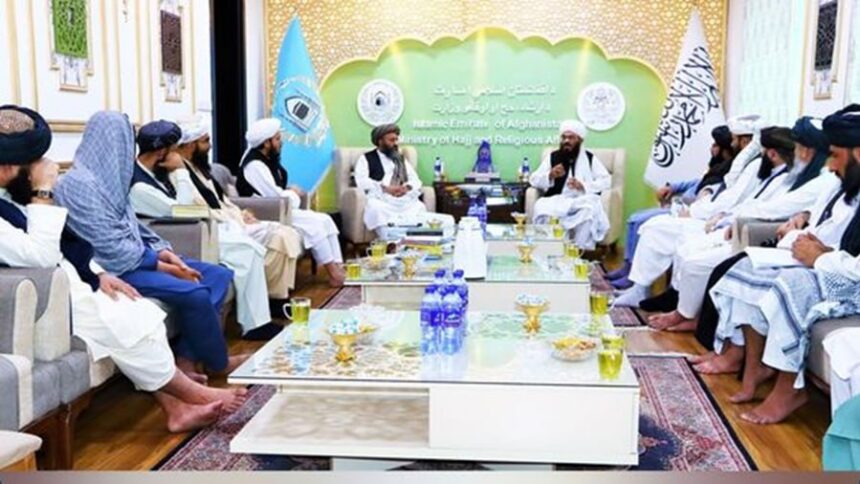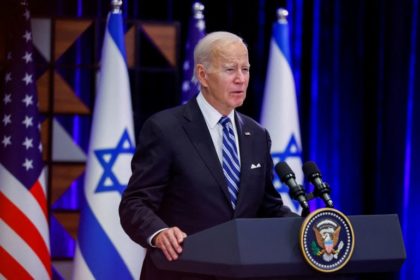RASC News Agency: In yet another move emblematic of its authoritarian grip on Afghanistani society, the Taliban has launched a sweeping campaign to purge books and ideas they deem “deviant” or “misleading.” Acting under direct orders from Mullah Hibatullah Akhundzada, the reclusive supreme leader of the group, officials from four key ministries gathered in Kabul to strategize a nationwide crackdown on intellectual material that challenges the regime’s rigid theocratic worldview. State-run Afghanistan National Television now effectively a propaganda organ of the Taliban reported that the meeting was convened on Sunday, July 13, and chaired by Noor Mohammad Saqib, the acting Minister of Religious Affairs and Hajj. Senior representatives from the Taliban’s Ministries of Higher Education, Education, and Information and Culture also participated.
The agenda was as draconian as it was clear: identify, evaluate, and confiscate books that are considered “suspicious,” “ideologically misleading,” or contrary to the Taliban’s interpretation of Islam. Saqib announced that following the review, warnings would be disseminated through mosques, instructing the public particularly Afghanistani youth to avoid such literature. Evaluations, he said, would be carried out by religious scholars and grounded solely in the “principles of Sharia.” Furthermore, a joint committee comprising all four ministries is being established to draft official guidance for identifying and eliminating literature that the Taliban claims could “confuse” the population or “corrupt” moral values. In reality, however, this initiative is part of a broader ideological offensive against free thought, pluralism, and modern knowledge.
Since retaking power in August 2021, the Taliban has made no secret of its hostility toward intellectual diversity. The regime has banned or withdrawn from circulation hundreds of books, halted the publication of scholarly titles, and prohibited the printing and sale of materials that fail to conform to its extremist doctrines. Any content that promotes critical thinking, secular inquiry, or human rights is reflexively branded as “un-Islamic,” “Westernized,” or “subversive.” What the Taliban dismiss as “deviant literature” often includes foundational works in philosophy, sociology, psychology, gender studies, political theory, and even natural sciences disciplines that the group views as threats to its clerical authority. Behind this campaign lies a calculated effort to eliminate the intellectual tools that could empower Afghanistani citizens, particularly the youth, to question religious absolutism and challenge the Taliban’s ideological monopoly.
The Taliban’s interpretation of Islam is rooted in a hardline Salafist and traditionalist framework that views modernity with profound suspicion. From this lens, any idea that promotes gender equality, religious tolerance, freedom of conscience, or the separation of religion and state is seen not as a point of debate but as an existential danger to the regime’s theological and political control. The result is a form of cultural and epistemological repression unparalleled in contemporary Afghanistani history. Libraries are being emptied. Curricula are being rewritten. University departments devoted to humanities, international law, and political science are being dismantled. Educators are being silenced. The very infrastructure of thought is being methodically destroyed.
And yet, this is not merely an attack on books it is a campaign against the mind itself. In the Taliban’s view, any text that encourages independent reasoning, nurtures critical inquiry, or exposes citizens to ideas beyond the narrow confines of the group’s dogma is an ideological threat. The regime fears a population that thinks for itself, particularly the younger generation, whose exposure to modern knowledge might awaken aspirations incompatible with Taliban rule. To enforce this intellectual apartheid, the Taliban has weaponized the machinery of the state. Ministries once tasked with nurturing education and culture have been repurposed into instruments of censorship and ideological policing. Public institutions from schools to universities to mosques are being transformed into vehicles for Taliban indoctrination.
This project of thought control is not accidental; it is strategic. It reflects a deep-seated understanding among the Taliban leadership that the true threat to their regime is not military opposition but an educated, critically minded society. A society that reads, questions, debates, and dreams. The Taliban’s ideological cleansing of Afghanistan’s intellectual landscape stands in direct contradiction to global principles of academic freedom, freedom of expression, and the right to education. It is a campaign not just of censorship, but of silencing an effort to extinguish the very possibility of dissent through the erasure of knowledge itself.
At stake is nothing less than the soul of Afghanistan. Once home to rich literary traditions, diverse philosophical currents, and globally respected academic institutions, the country is now being subjected to one of the most aggressive anti-intellectual purges of the modern era. The world must recognize the Taliban’s campaign for what it is: not a religious project, but a political one one that uses religion as a tool to justify authoritarianism, suppress intellectual freedom, and engineer a population obedient not to God, but to the narrow, brutal dictates of a regime that fears books more than bullets.






